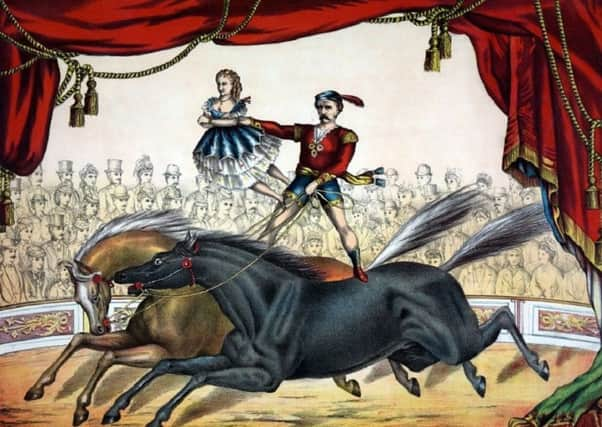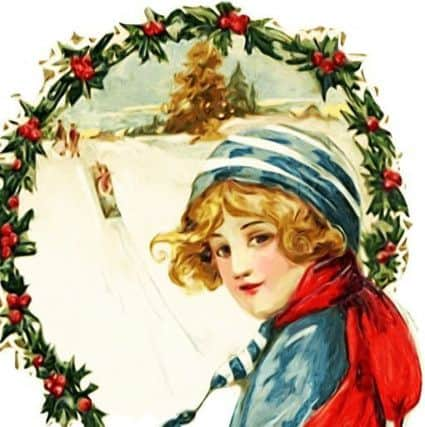Christmas in South Shields: A trip down memory lane to celebrations past


For as Dorothy explains, during the Great War in 1917, Sir Arthur Yapp, director of food economy, made it known that he was against providing festival treats for little ones.
“He was of the opinion,” she said, “that children’s treats, parish teas and Christmas entertainments, along with other functions which involved the consumption of additional food, should be discouraged.


Advertisement
Hide AdAdvertisement
Hide Ad“He believed it gave a false impression of the critical nature of food supplies. It is to be hoped he was ignored.”
In 1927, Dr Morrison, the Cumberland Medical Officer, caused quite a stir in the country, with his lectures about children’s parties being a danger to health at the Christmas season ... citing the spread of measles and whooping cough.
Leaping forward to the Second World War, and there were no such “Scrooge or killjoy-like” sentiments.
“In 1941, Northern Command, despite the deprivations of the war, were going forward with organising concerts, dances, parties, pantomimes and nativity plays, to be staged by the troops.
Advertisement
Hide AdAdvertisement
Hide Ad“Catterick camp had prepared a panto and a nativity play, with festivities starting on December 20. Cinderella was performed by the Royal Army Service Corps concert party, whilst the Royal Armoured Corps were staging Red Riding Hood.
“Catterick wound up the Christmas fun with their version of the comics ‘The Crazy Gang’.
“Officers organised Christmas parties for the children of their soldiers, with local tradesmen providing the gifts while sing-song parties had also been organised.
“For dinner, there was a Christmas menu of roast pork, roast potatoes, sage and onion stuffing, Brussels sprouts, apple sauce and Christmas pudding, and in some cases mince pies. Several units had even been fattening their own geese and ducks – which were closely guarded at all times!”
Advertisement
Hide AdAdvertisement
Hide AdAlso in 1941, it was reported that Mill Dam, in South Shields, was hoping to have the largest British restaurant in the North ready in time for Christmas.
It would accommodate 350 people at one sitting and provide 2500 meals at midday.
“Nothing, it seemed,” added Dorothy, “would put a damper on wartime Christmas.”
Travelling further back in time, and the people of South Shields had plenty to keep them entertained.
Advertisement
Hide AdAdvertisement
Hide Ad“In 1880, Messrs Atrato & Allen’s Circus were staging performances at Mile End Road, in South Shields. The big top was owned by William Smith Atrato, who had previously been a horseback circus rider and Charles Herbert Allen.
“Their Christmas show offered a Chinese Carnival, with a veritable feast of lanterns. Chinese national dances were to be performed and gymnastic, acrobatic and trapeze acts were to follow with a fireworks display for the finale.
“The town’s Theatre Royal, meanwhile, was presenting Robinson Crusoe that year and was to ‘feature splendid costumes and have effective gas and limelight effects’.
“Nine years later Stewart, Taylor & Company, the King Street clothiers, were promoting their smart suits and overcoats and boys and girls reefers as Christmas attire, while R. Wilson, the Cash Draper of 42 King Street, was “making a show of cheap lots – aprons, furs, shirts, blankets, gloves, handkerchiefs, and all at special prices for Christmas!”
Advertisement
Hide AdAdvertisement
Hide AdAnother South Shields shop promoting its wares was Johnson & Company, of Victoria House, in the town’s Fowler Street.
“The company stocked Christmas cards at 12 for 2d, or 12 with envelopes for 6d while Tyler & Sons of 51 Green Street declared optimistically that their window display of boots and shoes ‘was the greatest show in town’.
Remaining with the retail theme, S & E Stones, of 54 Fowler Street, were “selling cheap and stylish millinery for Christmas, as well as gloves and frillings and fancy goods, whereas the Victorian Provision Company, at 50 King Street, were aiming to ‘please everybody with their made twice daily, delicious Victoria sausages’.
“Rivals Yeoman & Evans at 37 King Street, a provisions store, were selling Cambridge sausage, Birds Custard powder, tins of condensed milk, one pound tins of green peas, full cream American cream cheese, Roquefort cheese from France, Gorgonzola cheese from Italy and Edam cheese from Holland.
Advertisement
Hide AdAdvertisement
Hide Ad“You would also have been able to buy Valencia raisins, almonds from Jordan, citron peel, figs, Danish butter, West Indian sugar, a variety of coffees from Ceylon and a large range of different teas.
“All over the country, 140 years ago, an incredibly large range of goods from all over the world, were being sold on a regular basis in our grocery shops.”